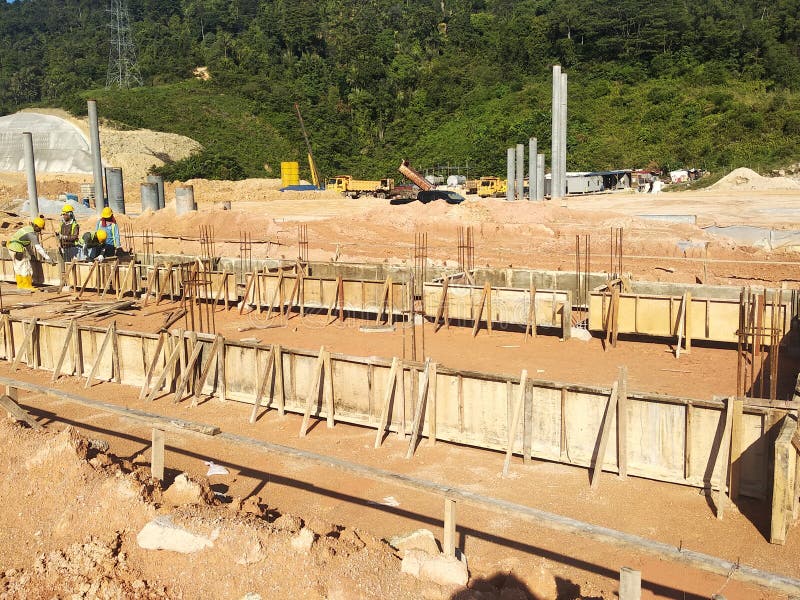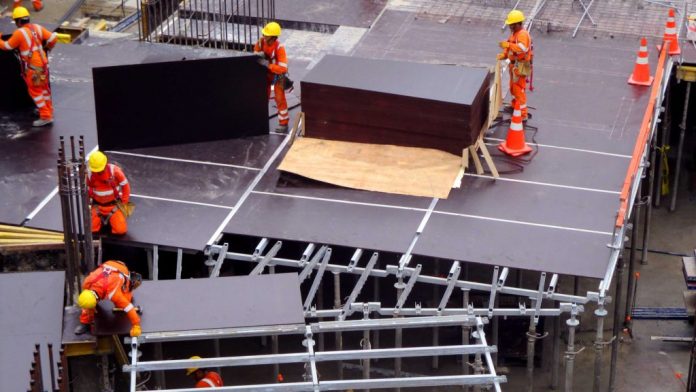As the world faces pressing environmental challenges, the importance of sustainable construction methods cannot be overemphasized. With rising concerns over the depletion of natural resources, the need for eco-friendly solutions has never been more crucial. One such solution is the use of plywood formwork for sustainable construction. Plywood formwork is a cost-effective and versatile building material that can be used in a variety of construction projects, from residential to commercial buildings. It is durable, easy to handle, and offers a sustainable alternative to traditional building materials while providing high-quality results. Visit https://constrofacilitator.com/plywood-formwork-advantages-types-and-applications/ for best Plywood formwork for sustainable construction.
In this blog post, we will explore the benefits of plywood formwork in sustainable construction. We will discuss how it contributes to minimizing the environmental impact caused by construction activities, including reducing waste and promoting energy efficiency. Additionally, we will highlight the cost savings associated with using this solution for construction, considering its longevity and ease of maintenance. Furthermore, we will discuss its versatility and flexibility, making it a popular choice for architects, builders, and contractors.

Contents
1. Plywood formwork is a versatile and eco-friendly solution for sustainable construction.
Plywood formwork is growing in popularity as a versatile and eco-friendly solution for sustainable construction practices. This cost-effective construction material is made from renewable, fast-growing trees and can be recycled after its use. The plywood formwork is designed and adapted for various construction projects and can be easily cut and shaped to meet different construction needs. Its durable and robust nature can withstand heavy loads, making it a popular choice for building reinforced concrete structures. This sustainable construction material plays a vital role in reducing carbon footprint in the construction industry, as it is a carbon-neutral and environmentally friendly alternative to traditional building methods.
2. It is a cost-effective alternative to traditional construction methods, reducing both material and labor costs.
Plywood formwork is a widely recognized eco-friendly solution that is gaining popularity in the construction industry due to its sustainability, cost-effectiveness, and high-quality results. As highlighted in this document titled “Plywood Formwork for Sustainable Construction: An Eco-Friendly Solution,” one of the significant advantages of using plywood formwork is its cost-saving benefits, including a reduction in both material and labor costs. Compared to traditional construction methods, plywood formwork requires fewer materials, which translates to reduced expenses in transporting, storing, and handling them. Additionally, the use of plywood formwork eliminates the need for expensive heavy equipment, such as cranes, as it can be easily assembled on-site by a small team, reducing labor cost significantly. These cost-saving benefits make plywood formwork a cost-effective alternative for sustainable construction projects without comprising quality and performance.
3. Plywood formwork is reusable, reducing waste and promoting sustainability.
Plywood formwork is an eco-friendly solution for sustainable construction. One of the key advantages of plywood formwork is that it is reusable, reducing waste and promoting sustainability. Plywood formwork can be used multiple times and can last for many construction projects. This reusable feature of plywood formwork helps to reduce the amount of timber and other materials required for construction projects, thereby reducing the overall environmental impact. By promoting the reuse of materials, plywood formwork contributes to the reduction of waste in construction sites, making it a sustainable option. Additionally, as plywood formwork is fabricated from renewable materials such as wood, it is an eco-friendly solution for the construction industry. In this way, plywood formwork for sustainable construction offers a practical and sustainable solution that is vital in today’s world where there is an increasing demand for sustainable building practices.
4. It is a durable material that can withstand harsh weather conditions and heavy loads, ensuring long-lasting structures.
Plywood formwork is becoming an increasingly popular option for sustainable construction due to its eco-friendliness, affordability, and durability. Plywood is a composite material made by gluing multiple layers of wood veneers together, resulting in a strong and stable panel. It is a durable material that can withstand harsh weather conditions and heavy loads, ensuring long-lasting structures. Plywood formwork is widely used in various construction projects because it can be easily molded into any shape, providing flexibility and convenience in building customized structures. Furthermore, since plywood is a natural material that is sourced from renewable forests, it is an eco-friendly option that promotes sustainability in the construction industry. All in all, plywood formwork is a practical and cost-effective solution that offers quality, durability, and environmental responsibility without compromising construction standards.
5. Plywood formwork also provides greater flexibility in design, allowing for a wide range of shapes and sizes to be constructed with ease.
Plywood formwork has emerged as an ideal choice for constructing sustainable structures that are both eco-friendly and cost-effective. One notable advantage of plywood formwork is its ability to provide greater flexibility in design, allowing for a wide range of shapes and sizes to be constructed with ease. This versatility in design enables architects and contractors to construct structures that are both functional and aesthetically pleasing. Plywood formwork’s innate strength and durability make it ideal for creating complex concrete molds that would otherwise be difficult to achieve using conventional building materials. In this way, plywood formwork has already been adopted by the construction industry, playing a key role in the development of modern sustainable buildings.
Conclusion
Plywood formwork is a sustainable and eco-friendly solution for construction. It not only reduces the carbon footprint of construction projects but also provides cost-effective benefits. With the growing concerns of climate change, sustainable practices like this are becoming more important in the construction industry. By choosing plywood formwork, builders and contractors can contribute to a better future while providing high-quality, durable structures. It’s time for a change in the industry, and it starts with small steps towards sustainability. Plywood formwork is just one of those steps.




[…] extends to flooring as well. Homeowners are increasingly opting for flooring materials that are eco-friendly and sustainable, such as bamboo, cork, and reclaimed wood. These materials offer a unique and natural look, and […]